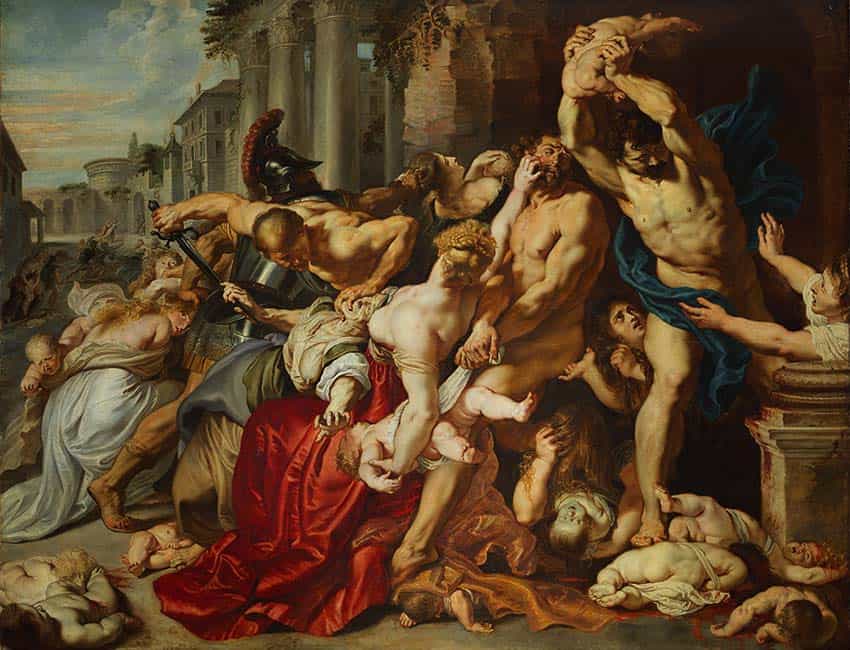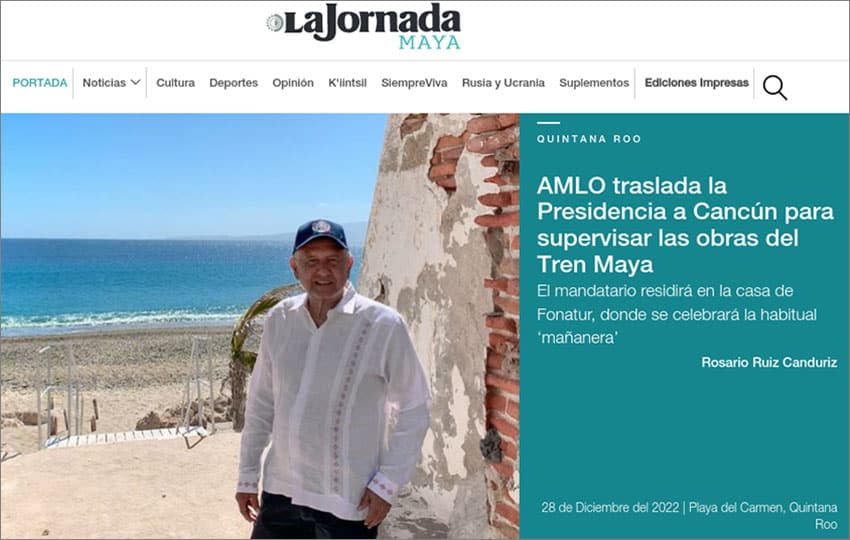Remember, it's December 28, the day for pranks in Mexico. On our site today, learn about the history of Día de los Inocentes and some of the best fake news headlines from national media outlets.
 |
|
|---|
Primer: why is Dec. 28 a day of tomfoolery in Mexico?
To many Mexicans, Dec. 28 might seem like a fun day — where it’s traditional to play jokes or pranks on friends and family — but the origin of this day, known in Mexico as Día de los Inocentes (Feast of the Holy Innocents), is far from fun. In fact, the religious holiday has its origins in a tragedy.
The story goes back 1,500 years, to the time when Herod was king of Judea, a city under the Roman empire. According to history, he was considered a client king of the empire, subservient to Rome.
According to St. Mathew’s gospel in the New Testament, the Three Wise Men — known as the Reyes Magos in the Spanish-Catholic tradition — announced that the messiah would be born soon and that he would become the King of Israel and of all Jewish people.
When Herod heard the news, he asked for the Wise Men to inform him when the baby was born so he could worship him. But Herod actually wanted to kill the baby because he saw him as a threat to his reign.

But a revelation warned the Wise Men of Herod’s plan, and when the king found out he’d been tricked by the Wise Men, who didn’t inform him of Jesus’ birth, the Bible says that he ordered the slaughter of all male infants under two years old in and around Bethlehem. Joseph, Mary and their son escaped by fleeing to Egypt.
Over time, the babies murdered by Herod became known as the Holy Innocents. They’re considered Christianity’s first martyrs. In English, this Biblical event is often referred to as the Massacre of the Innocents.

News outlets in Mexico (and Spain) also participate in this day, reporting ridiculous and funny fake-news, not unlike how some English-language news outlets run humorously fake articles on April Fool’s Day.
This year, Expansión shared several made-up news items on Wednesday that the publication said it felt readers would like to have seen this year, including one about President López Obrador deciding that he would stop holding daily press conferences after his 1,000th. Another said that the much-maligned new Felipe Ángeles International airport had won one of architecture’s biggest awards.
Expansión even poked fun at many Mexicans’ frustration this year with Argentina’s national soccer team (Mexico’s rival), which defeated France to win the World Cup in the nail-biting final on Dec. 18, with the headline: “FIFA will repeat the World Cup final due to referee errors.”
In its parodic front page this year, the newspaper Reforma announced that the Defense Ministry (Sedena) would be put in charge of the Mexican national team.
Although Expansión warned its readers of the jokes at the top of its articles, and Reforma makes a special front page with its name changed to “Reformado,” other news outlets play it straight until the very end, as the newspaper La Jornada Maya did Wednesday, with an article about AMLO supposedly moving his administration to Cancún in order to better supervise the construction of his signature project, the Mayan Train.
The newspaper Reforma poked fun at AMLO’s contentious relationship with journalists with a satirical article claiming that the president was now blaming the newspaper for the public health system’s real medicine shortages.
At the bottom of the article, editorial staff finally let readers in on the joke with a banner reading, “Inocente palomita que te has dejado engañar, esta edición no es del todo verdad.” (Innocent little dove, you’ve let yourself be fooled; this edition is not entirely true.)
Inocente palomita is the term used for anyone fooled on this day.
So when Dec. 28 comes each year, look out for pranksters — and don’t believe all that you read in the news.
With reports from CNN, La Jornada Maya and Expansión.

No comments:
Post a Comment
Thank you. Comments are welcome.
ivan